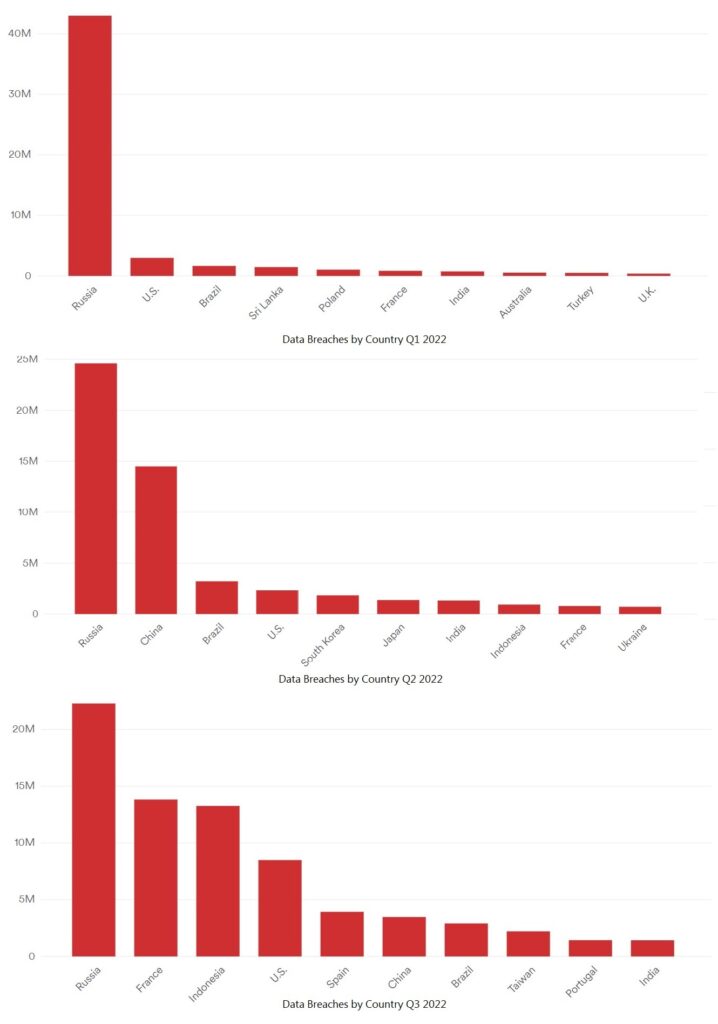Data Breaches Soared by 70% In Q3 2022 in an Otherwise Dull Year
After a period of lull in the first half of 2022, data breaches grew significantly in Q3 2022. According to findings by Surfshark, data breaches surged by 70% quarter-over-quarter, to 108.9 million accounts in Q3 2022.
The Q3 2022 numbers are almost as big as the number of accounts/emails breached in the first half of the year (64.36 million accounts breached in Q2 2022, 63.06 million in Q1 2022).
“Q3 of 2022 showed a 70% increase in breaches compared to Q2, and while this number is lower than last year, it’s still an increase,” Surfshark noted.
Russians continued to be the top most breached people in Q3 2022 (22.28 million) after dethroning the U.S. (which had been the most breached country for a few years) in Q1 this year, corresponding to the conflict in Ukraine. However, their contribution to the list of data breaches continued to decline (24.59 million in Q2 2022, 42.99 million in Q1 2022).
Interestingly, the difference between Russian account breaches and the second-most breached country (the U.S. in Q1 and France in Q2 and Q3) also declined in Q3 2022, as the graphs below suggest. Additionally, more countries suffered a higher number of data breaches in Q3 2022 compared to the previous two quarters of 2022.
Data Breaches by Country for Q1, Q2 and Q3 2022 | Data Collated from Surfshark
See More: Cybersecurity Awareness Month: Eight Security Insights That You Should Know
Though Russia suffered the highest number of breached accounts, France registered the highest breach density (the breach count of a country per its population) of 212 leaked accounts per 1,000 people, followed by Russia at 153. France also saw a 1,710% increase in data breaches, surpassed only by Chile (1,852%), Bolivia (1,913%) and Zambia (3,886%). Overall, the global breach density stands at 14 accounts for every 1,000 people.
Region-wise, Europe was still the most affected, suffering half of the total data breaches in Q3 2022, followed by Asia, North America, South America, Africa, and Oceania. Surfshark assessed that 40% of the attacks in European breaches came from Russia.
“Looking at the big picture, 2022 seems like a promising year. The number of breached accounts…

